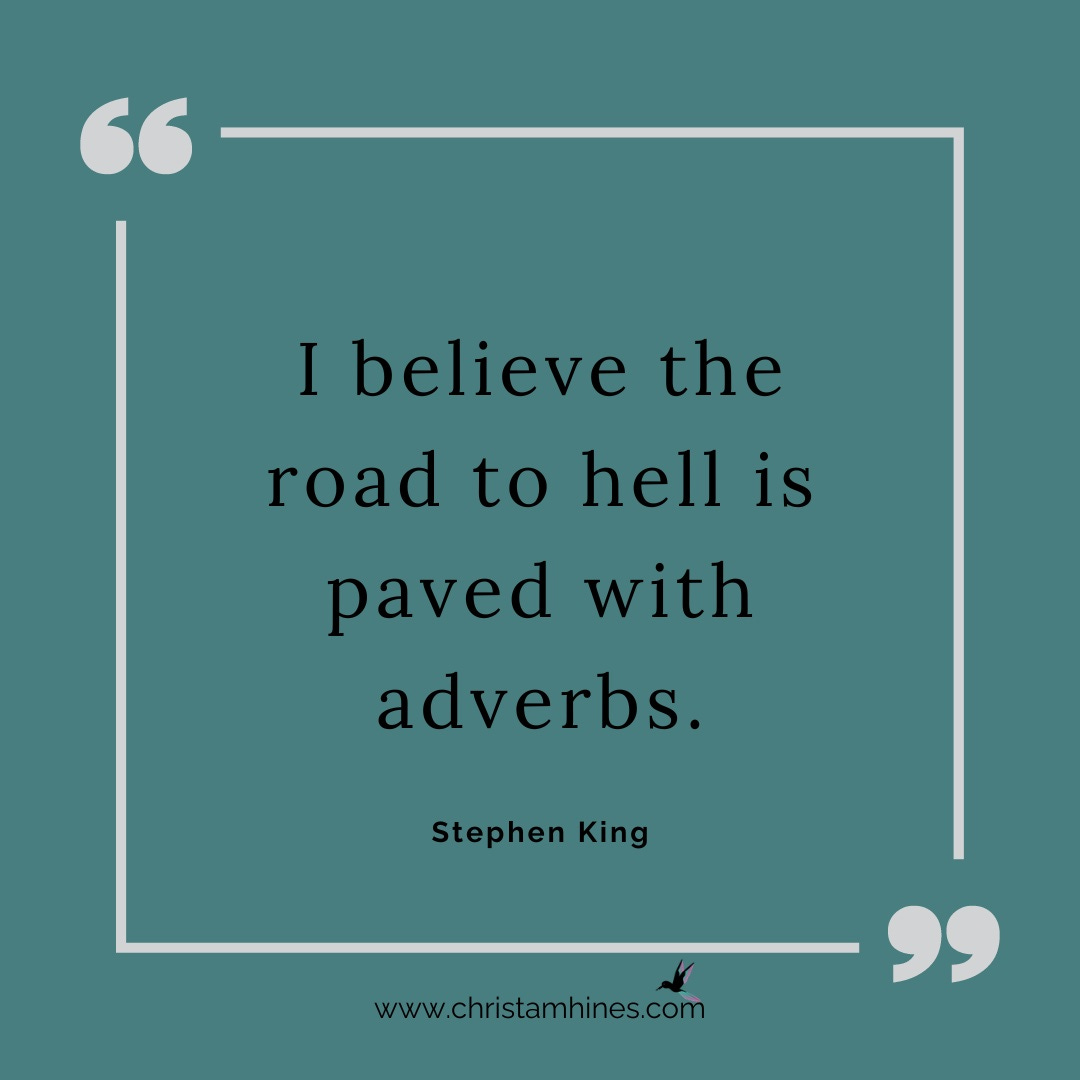Tighten to Lighten: 7 edits that will strengthen your marketing content
Take time to edit your content for better readability and clarity.
When you were a kid did you ever try the floating arm trick where you stand in a doorway and press your hands hard against the doorframe for 30 seconds?
You were supposed to tighten every muscle in your arms and then when you let go, your arms would feel light, like they were floating. (There’s actually a scientific name for it, the Kohnstamm phenomenon.)
Tightening or editing your content can work in a similar way. Tight content is clear and easy to digest. Just as you feel lighter when you get rid of clutter in a room, edited content has room to breathe and feel effortless.
Instead of the reader getting hung up on clunky, rambling sentences or words that don’t make sense, they’re focused on the point you’re making.
What should you look for when you review your work?
7 Edits That Will Strengthen Your Marketing Writing
1. Jargon.
Unless you’re writing to other industry insiders, remove jargon. Jargon can alienate and distract your reader. If you must use a technical word or abbreviation to make your point, don’t move on until you’ve helped your reader understand what it means.
2. Fancy-pants words.
I love words. The more interesting, the better. In school, classmates put me in my place a few times when I’d test out a new-to-me word. They’d roll their eyes and say, “Ooooh, big word….”
In marketing writing, simpler is better. When I spy a word I’ve written that’s a little too fancy-pants, I think to myself, “Ooooh, big word, Christa…” and swap it out for a word someone would actually use in conversation.
Example:
The massage therapist was excited to utilize her new massage table.
vs.
The massage therapist was excited to use her new massage table.
This brings me to my next tip…
3. Formal language.
Aim for a conversational tone. Contractions help give your content a friendlier, more approachable vibe.
Example:
One should not feel pressured to write an English essay for one’s audience.
vs.
Your audience doesn’t want to read an English essay.
4. Fluff.
As you re-read your content, are there sections that don’t make much sense or veer off into tangents? Give those lazy words the boot.
Warning! Some fluffy sentences dress up in their Sunday best. You’re going to think, “But that was such a clever/beautiful/funny line! Do I have to get rid of it?”
If the sentence takes the reader out of the point of the message, then yes, remove it. Writers refer to these sentences in the editing process as “killing our darlings.” We’re sick like that.
If you aren’t feeling particularly bloodthirsty, paste them into another document. Maybe you’ll find a use for those sweeties later.
5. Weak, unnecessary words.
Common words that can weaken your work if overused include: unique, very, I think/feel, possibly, that, just, a lot, thing, stuff, really, so, kind of.
Too many unnecessary adverbs (words that often end in -ly) like absolutely, literally, completely, exceptionally, etc., can weaken your work.
Here’s an example of a weak sentence versus a strong sentence:
My daughter was excitedly running across the playground dropping stuff everywhere. She was completely out of breath when she got to me. She was so anxious to tell me about her first day of kindergarten.
vs.
Beaming, my daughter raced across the playground toward me. Papers spun into the air and pencils scattered across the asphalt from her open backpack. She was out of breath by the time she reached me, anxious to tell me about her first day of kindergarten.
Although the second example is longer in word count, by using stronger verbs, it’s easier to visualize what is happening in the scene.
And it probably goes without saying, watch out for passive voice.
Example:
Passive: The cookies were baked by the women’s guild.
Active: The women’s guild baked the cookies.
6. Excessive use of exclamation points!!!!
The exclamation point should be used sparingly in marketing. Too often I see business owners use exclamation points as if they’re trying to soften their messaging. It makes me think they aren’t taking themselves seriously— and it could hurt their credibility.
Reserve your exclamation points for your text messages, social media comments, or those moments when you want to express excitement, like “Don’t miss my BIG SALE!” Or “Congratulations!”
7. Clunky sentences.
Poorly constructed sentences can’t hide when they’re called onto the mat. That’s why I often read my work aloud. You’ll be amazed at how many clunky sentences you’ll discover with this strategy.
If you do nothing else, ask yourself these questions when you review your work:
Does this piece of content answer the question I want to answer?
Would I understand it if I was new to this topic?
Did I include relevant details, like who/what/when/where/why and how?
Could any of this content work better as its own post/blog/article/web page?
Did I tell them what to do next?
Want additional editing support? Some of my favorites include Grammarly, a free AI editing tool, and Grammar Girl. If you’re working on a book-length project, I recommend hiring a professional editor. Check out the Editorial Freelancers Association.
What I can’t stop thinking about this week.
“Judy Blume Forever… The Amazon Prime documentary about Judy Blume, who has had more of her books banned than any other children’s book author. And, some people are challenging her work again along with books by authors writing about issues related to race and LGBTQ+.
Find out the 11 most banned books from last school year according to Pen America.
Reading fosters empathy, literacy and a deeper connection to the world. My version of summer camp as a kid was the public library. While my parents were strict about the movies and TV shows we watched growing up, they never told us we couldn’t read something. Of course, Judy Blume books like Are You There God? It’s Me Margaret, Blubber and Tales of a Fourth Grade Nothing were definitely in my stack.
In this documentary, it was fun to discover that Judy Blume is just as down-to-earth and relatable as her books.







